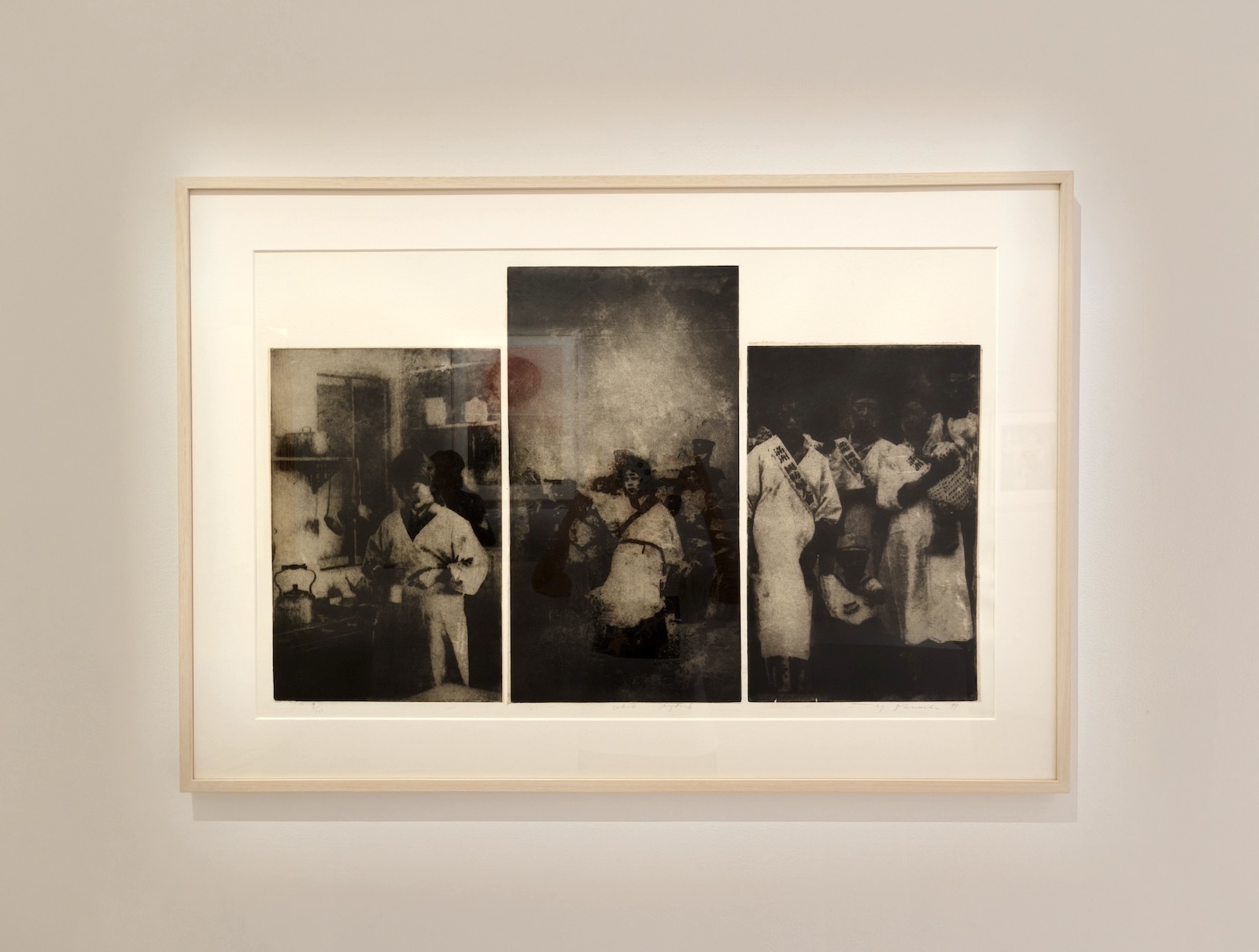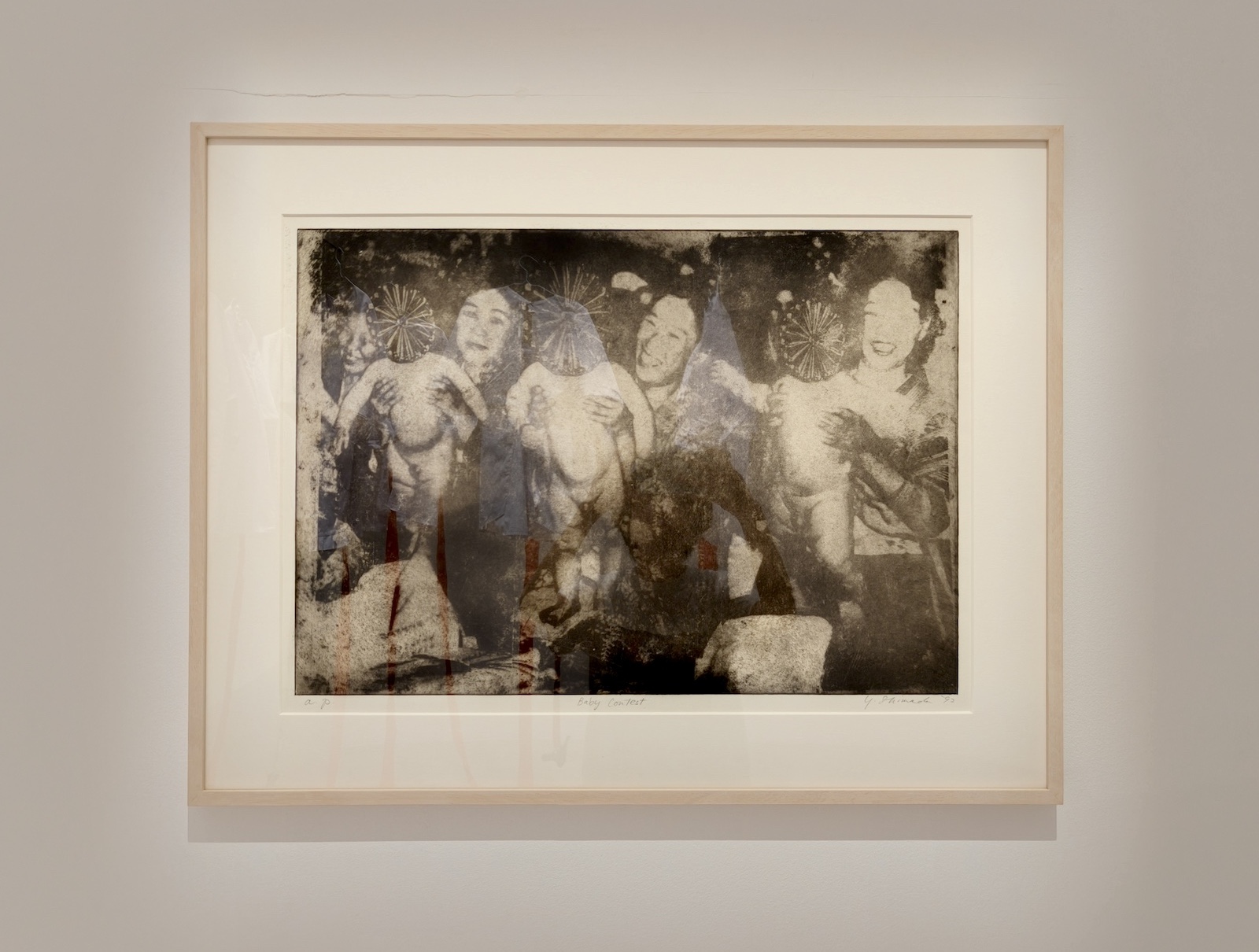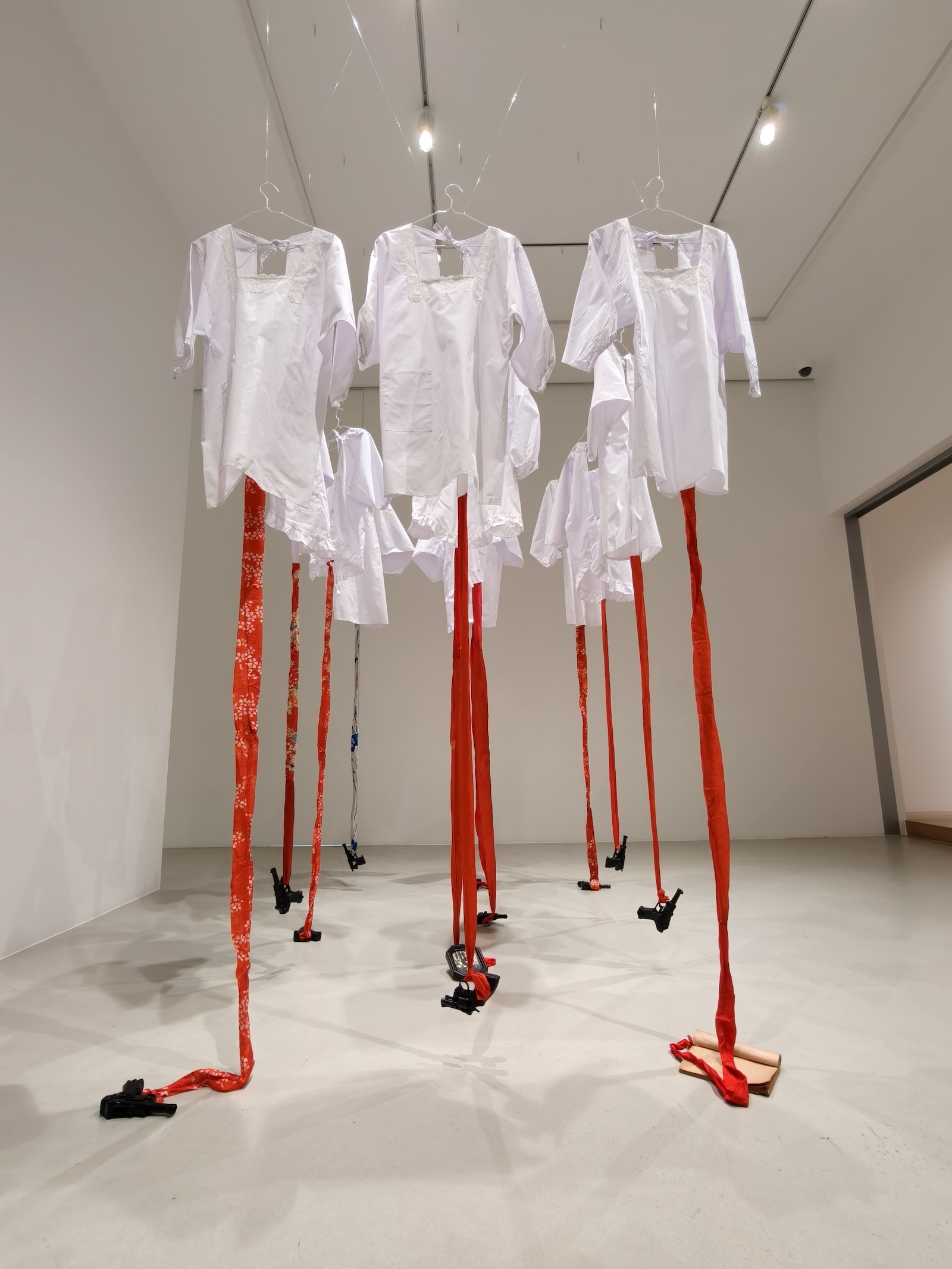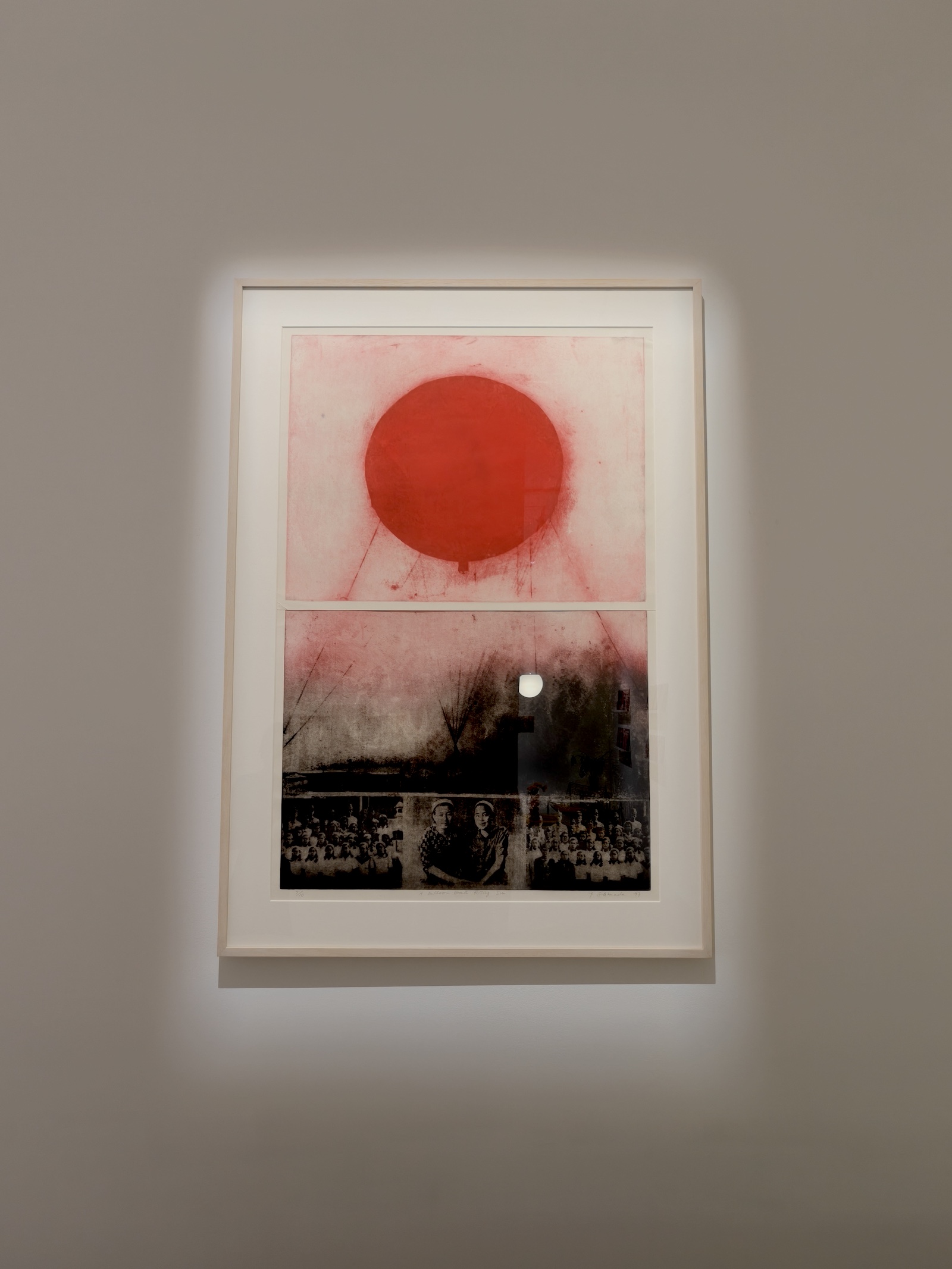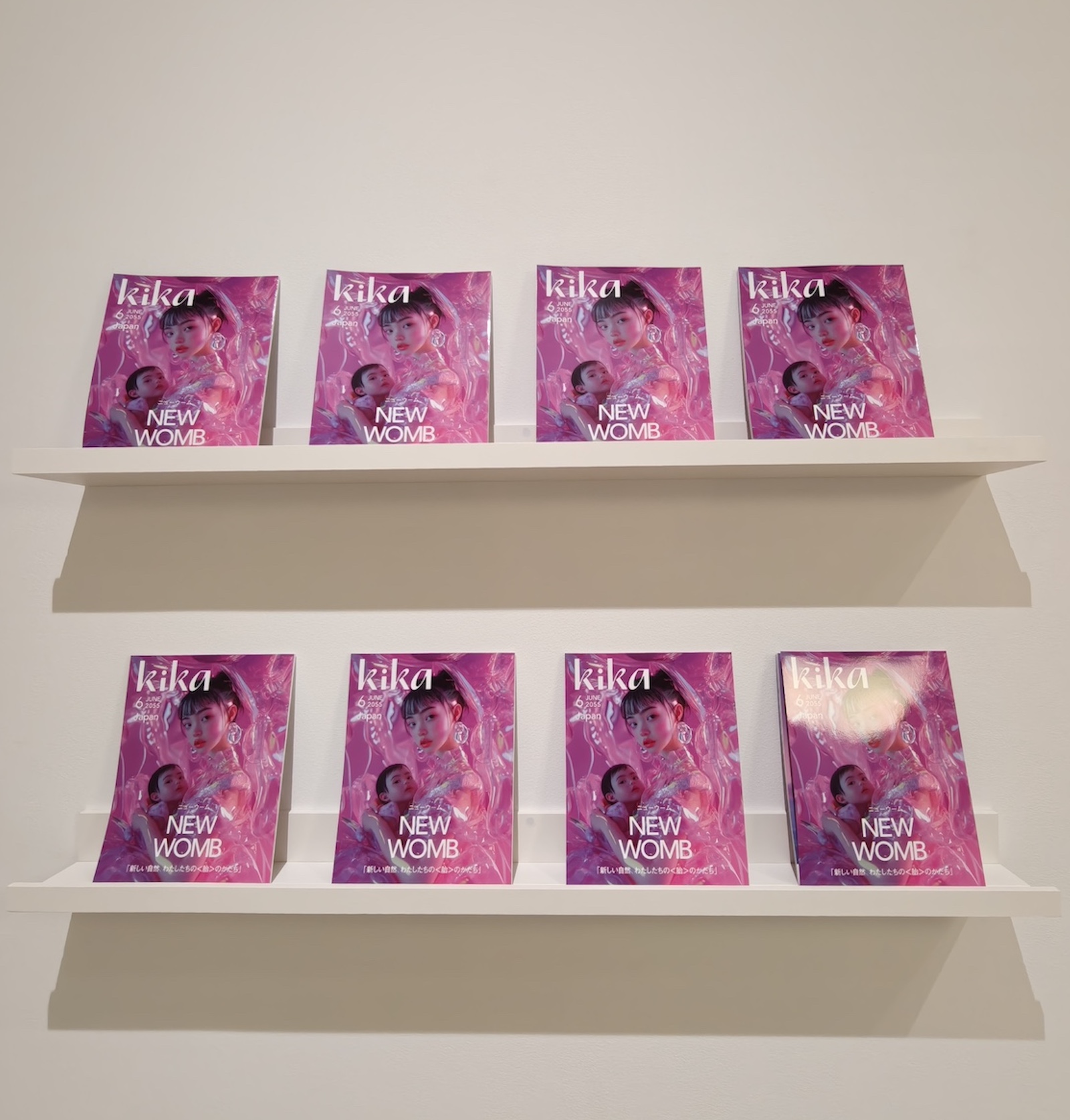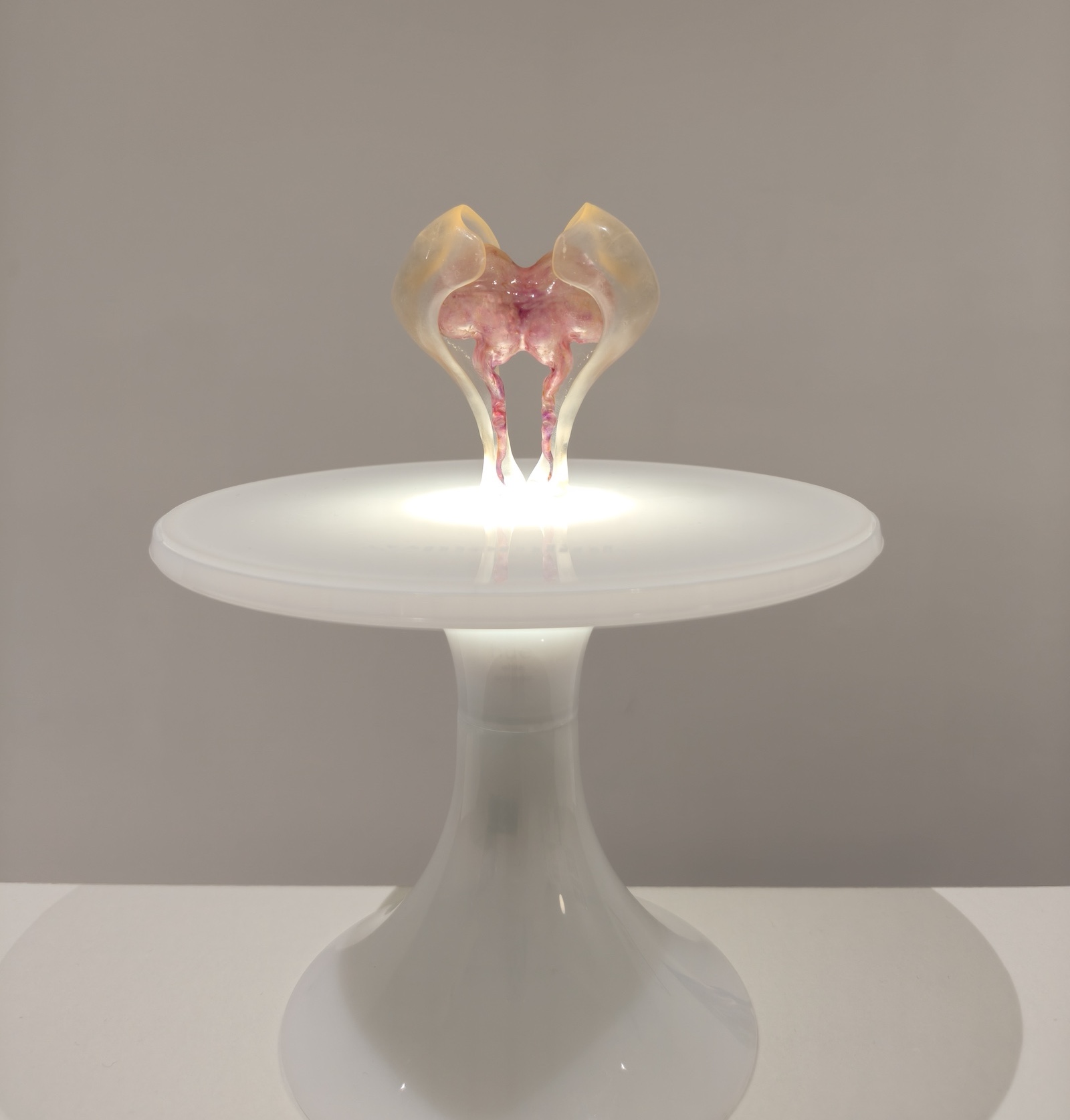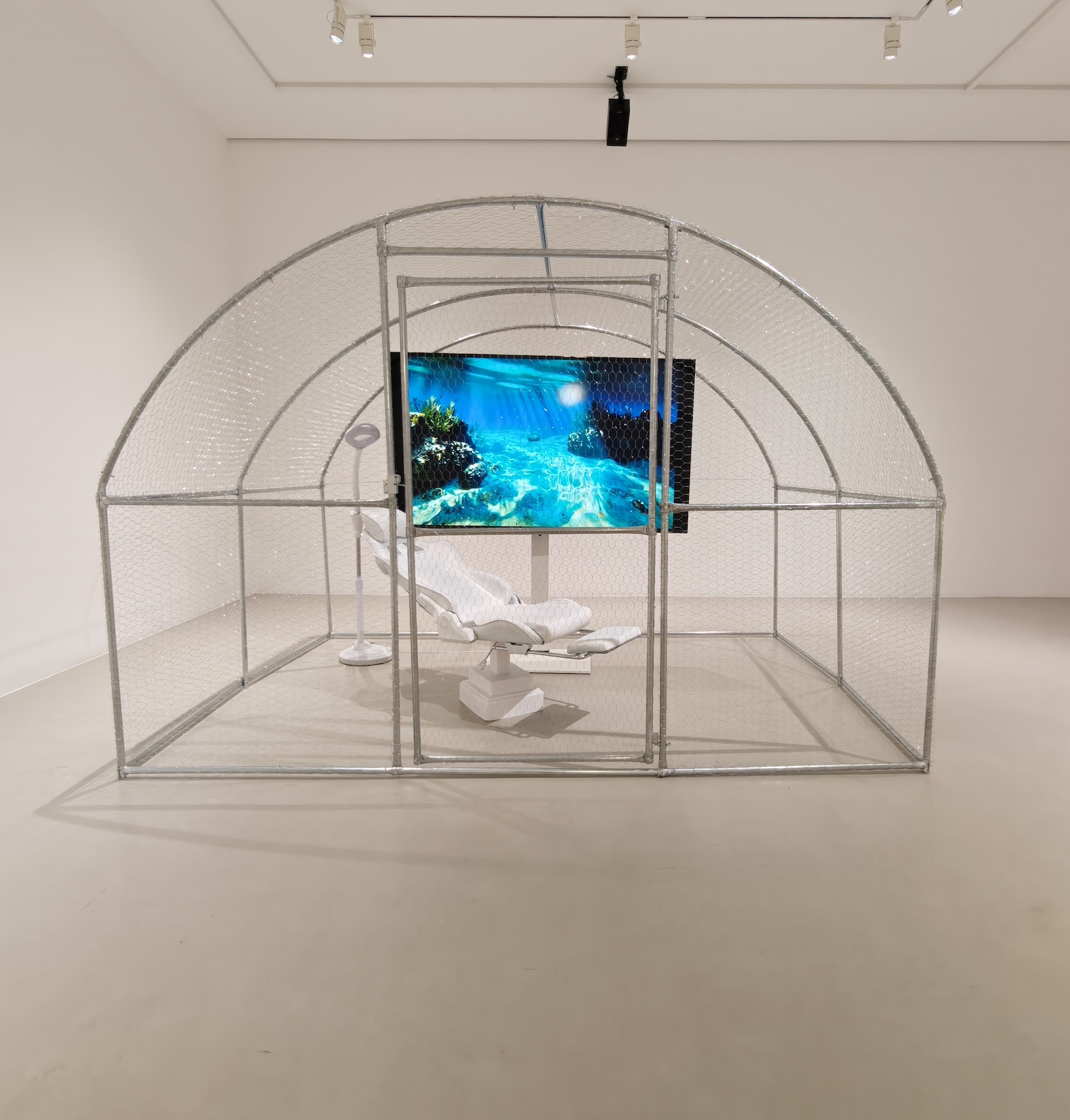Use your up, down, left, and right keys, or click within to navigate.
Yoshiko Shimada - Layla Yamamoto - Namae Myoji
"In the beginning, womankind was the sun - true human beings. Now, women are the moon; they live through others, shine by the light of others, like a sickly pale moon."
This exhibition critiques the Japanese state's control of women's bodies and sexuality from the modern period to the near future by showcasing works by three contemporary Japanese women artists. These pieces offer perspectives on the imperialist era, the present and the future socio political landscape of Japan.
The exhibition takes its title from an article by Raicho Hiratsuka, a modern Japanese feminist activist who co-founded the magazine "Seito" (Bluestocking) with four other women in 1911. Hiratsuka's article critiques the subordinate socio political status of women in modern Japanese society, comparing it to an ancient time when women supposedly lived more independently. However, it raises the question of whether there ever was a time when women truly lived independently, as Hiratsuka stated.
A century after Hiratsuka's publication in Seito, Japan's 2023 Gender Gap Index hit its lowest point, ranking the nation at 125th out of 146 countries. Despite gender equality being enshrined in the postwar constitution, male-centric inequality persists within contemporary Japan. Through these artists' works, the exhibition aims to respond to the aforementioned question by revealing that Japanese women, across time, are still structurally distant from independence. It critically explores how women can truly achieve liberation, akin to the "sun" incisions by Hiratsuka.
The institutionalized control of women's bodies and sexuality in modern Japan stuck women into rigid roles of good wives and wise mothers, destined only to produce male citizens laboring and soldiering for the state. This firmly subordinated women within a male-centric empire obsessed with territorial expansion. The role as mothers for the state disregarded women's rights, bodies, and agency by design. In a contemporary period where structural gender discrimination persists, the patriarchal ideology of motherhood continues to transform its shape and endure within society. Technological advancements are also used to maintain a male-centric society by controlling women's bodies. Reproductive and body augmentation technologies internalizing sexism further objectify and consume women's bodies as reproducers. Today, women are still used as a mere "moon" for Japan.
Artists YS, LY, and NM explore the objectification and exploitation of women during different historical eras. YS delves into women in relation to war and Japanese imperialism, shedding light on the Greater Japan Women's Association's role and responsibility in supporting the home front during WW2 while critiquing the ideology of good wives and wise mothers. LY exposes how the exclusive and normative image of motherhood, imposed on women who undergo childbirth, systematically limits their diverse career choices by excluding them from the full time labor market, often relegating them to roles described as "reproductive machines" by Japanese politicians in contemporary society. NM contemplates the future of how women's bodies may be consumed and objectified amid technological advancements through installations and performances involving her own body, presenting visions of dystopia.
This exhibition critiques the Japanese state's control of women's bodies and sexuality from the modern period to the near future by showcasing works by three contemporary Japanese women artists. These pieces offer perspectives on the imperialist era, the present and the future socio political landscape of Japan.
The exhibition takes its title from an article by Raicho Hiratsuka, a modern Japanese feminist activist who co-founded the magazine "Seito" (Bluestocking) with four other women in 1911. Hiratsuka's article critiques the subordinate socio political status of women in modern Japanese society, comparing it to an ancient time when women supposedly lived more independently. However, it raises the question of whether there ever was a time when women truly lived independently, as Hiratsuka stated.
A century after Hiratsuka's publication in Seito, Japan's 2023 Gender Gap Index hit its lowest point, ranking the nation at 125th out of 146 countries. Despite gender equality being enshrined in the postwar constitution, male-centric inequality persists within contemporary Japan. Through these artists' works, the exhibition aims to respond to the aforementioned question by revealing that Japanese women, across time, are still structurally distant from independence. It critically explores how women can truly achieve liberation, akin to the "sun" incisions by Hiratsuka.
The institutionalized control of women's bodies and sexuality in modern Japan stuck women into rigid roles of good wives and wise mothers, destined only to produce male citizens laboring and soldiering for the state. This firmly subordinated women within a male-centric empire obsessed with territorial expansion. The role as mothers for the state disregarded women's rights, bodies, and agency by design. In a contemporary period where structural gender discrimination persists, the patriarchal ideology of motherhood continues to transform its shape and endure within society. Technological advancements are also used to maintain a male-centric society by controlling women's bodies. Reproductive and body augmentation technologies internalizing sexism further objectify and consume women's bodies as reproducers. Today, women are still used as a mere "moon" for Japan.
Artists YS, LY, and NM explore the objectification and exploitation of women during different historical eras. YS delves into women in relation to war and Japanese imperialism, shedding light on the Greater Japan Women's Association's role and responsibility in supporting the home front during WW2 while critiquing the ideology of good wives and wise mothers. LY exposes how the exclusive and normative image of motherhood, imposed on women who undergo childbirth, systematically limits their diverse career choices by excluding them from the full time labor market, often relegating them to roles described as "reproductive machines" by Japanese politicians in contemporary society. NM contemplates the future of how women's bodies may be consumed and objectified amid technological advancements through installations and performances involving her own body, presenting visions of dystopia.
Layla Yamamoto is an artist who explores Japan's sociopolitical landscape, reflecting feminist and postcolonial perspectives. Her works critically examine Japan's nuclear power history and systemic sexual violence in the postwar period, and offer reinterpretations of anime and manga culture through feminist and queer lenses.







